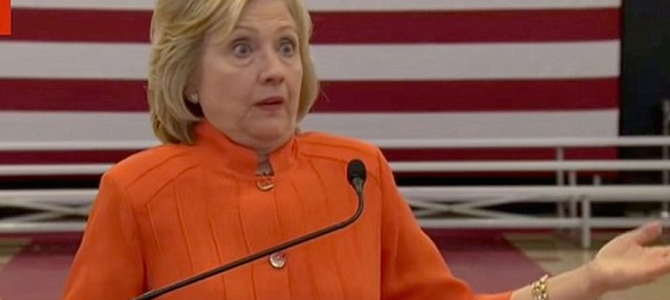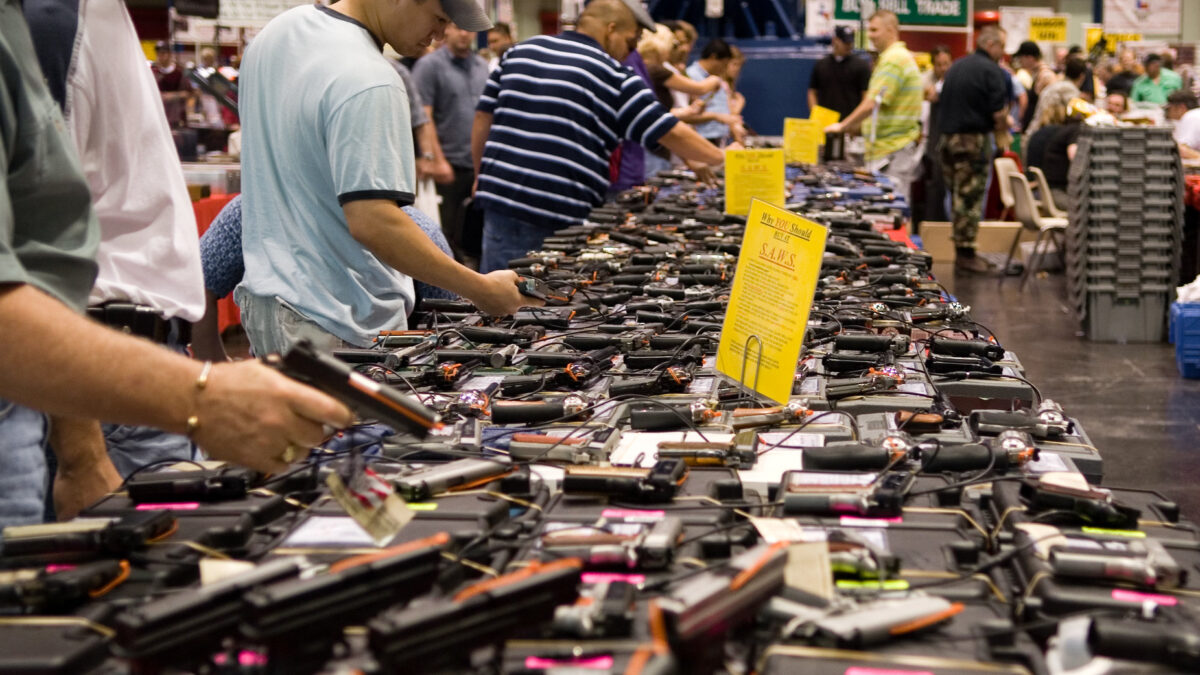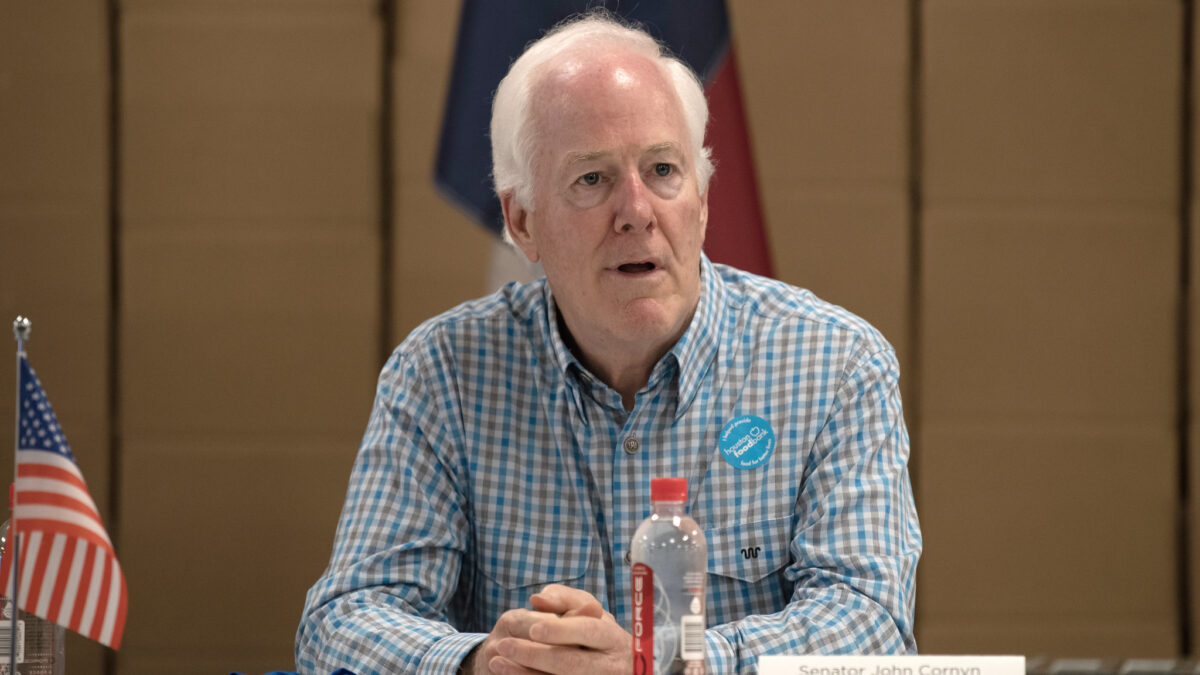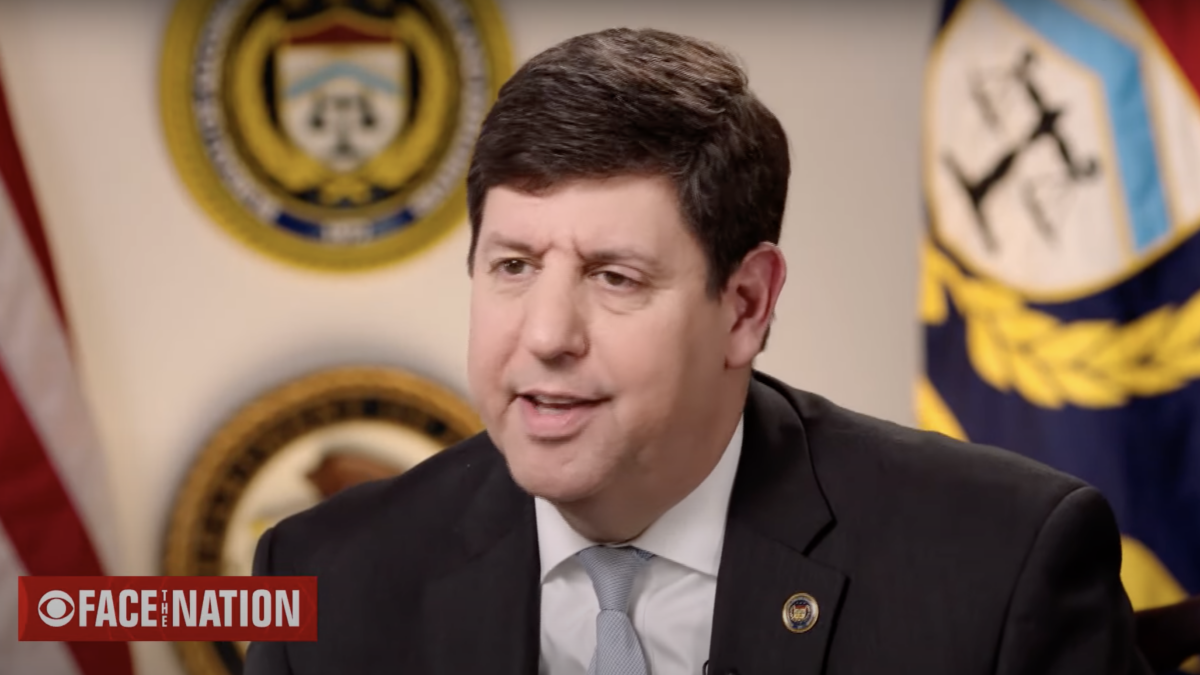In the wake of a mass shooting at an Oregon community college last week, Democratic presidential candidate Hillary Clinton announced today that she would close the so-called “gun show loophole” with an executive order if she were elected president. The only problem with her gun show loophole proposal is that it would accomplish exactly nothing, because current law already covers her proposal.
Here’s how Slate described Hillary Clinton’s proposal:
What makes Clinton’s plan particularly noteworthy, though, is her suggestion that she’d be able to go it alone on at least one of the proposals if elected president: the gun show loophole.
And just how would she do that? According to her campaign, even if Congress were unwilling to act, Clinton would be able to use her executive authority to tweak the existing rules to reclassify anyone who sells a “significant number of guns” as someone “in the business of selling firearms”—a distinction that would make those high-volume private vendors who sell guns at gun shows and over the Internet subject to the same rules as larger, licensed brick-and-mortar retailers. Clinton doesn’t appear to have settled on an answer to the question of just how many guns constitutes a “significant” number, but even if her chosen definition didn’t close the loophole completely, it would at least shrink it.
Such an effort could face legal challenges in the courts and, at the very least, a guaranteed NRA-led political freakout in Washington. And, even if the effort survived both, it wouldn’t come close to ending gun violence in the United States. But for gun safety advocates and like-minded voters who are desperate for action on a problem that can feel politically impossible, Clinton’s outside-the-box plan will be a welcome start.
Slate’s Josh Voorhees characterized Clinton’s plan as “clever,” which leads me to the inescapable conclusion that neither Voorhees nor Hillary Clinton is even remotely familiar with existing federal gun laws.
For starters, the federal government already has the statutory authority to define who does and does not qualify as an individual “in the business of selling firearms.” It derives that authority from 18 U.S. Code § 921. Here’s how the Bureau of Alcohol, Tobacco, Firearms, and Explosives (ATF) specifically defines whether an individual is engaged in the business of selling firearms and should therefore be subject to federal firearms licensee (FFL) requirements:
Dealer in firearms — a person who devotes time, attention, and labor to dealing in firearms as a regular course of trade or business with the principal objective of livelihood and profit through the repetitive purchase and resale of firearms, but such term shall not include a person who makes occasional sales, exchanges, or purchases of firearms for the enhancement of a personal collection or for a hobby, or who sells all or part of his personal collection of firearms (18 U.S.C. § 921(a)(21)(C));
Here’s the federal statute from which the ATF derives its existing authority to define who is and isn’t engaged in the business of selling guns:
(21) The term “engaged in the business” means—
(A) as applied to a manufacturer of firearms, a person who devotes time, attention, and labor to manufacturing firearms as a regular course of trade or business with the principal objective of livelihood and profit through the sale or distribution of the firearms manufactured;
(B) as applied to a manufacturer of ammunition, a person who devotes time, attention, and labor to manufacturing ammunition as a regular course of trade or business with the principal objective of livelihood and profit through the sale or distribution of the ammunition manufactured;
(C) as applied to a dealer in firearms, as defined in section 921(a)(11)(A), a person who devotes time, attention, and labor to dealing in firearms as a regular course of trade or business with the principal objective of livelihood and profit through the repetitive purchase and resale of firearms, but such term shall not include a person who makes occasional sales, exchanges, or purchases of firearms for the enhancement of a personal collection or for a hobby, or who sells all or part of his personal collection of firearms;
(D) as applied to a dealer in firearms, as defined in section 921(a)(11)(B), a person who devotes time, attention, and labor to engaging in such activity as a regular course of trade or business with the principal objective of livelihood and profit, but such term shall not include a person who makes occasional repairs of firearms, or who occasionally fits special barrels, stocks, or trigger mechanisms to firearms;
(E) as applied to an importer of firearms, a person who devotes time, attention, and labor to importing firearms as a regular course of trade or business with the principal objective of livelihood and profit through the sale or distribution of the firearms imported; and
(F) as applied to an importer of ammunition, a person who devotes time, attention, and labor to importing ammunition as a regular course of trade or business with the principal objective of livelihood and profit through the sale or distribution of the ammunition imported.
Contra Hillary Clinton’s campaign, “high-volume private vendors” cannot legally exist under current law. Under the ATF’s existing definition, it is impossible to sell high volumes of firearms without triggering the definition of a dealer in firearms. The “repetitive purchase and resale of firearms” makes you a dealer, not a private individual. Anything other than “occasional sales” makes you a dealer, not a private individual. Unlicensed dealing is against the law. Refusing to conduct background checks as a dealer (licensed or not) is against the law.
Now, if you read through the ATF regulations or the statutes from which they derive their authority, you’ll notice something missing: any mention of gun shows or the Internet. Does that mean gun shows are unregulated, as Clinton and her allies dishonestly imply? Does it mean that Internet sales are unregulated? Not at all. In fact, it shows the exact opposite.
There is zero protection enshrined in law for transactions that happen to occur at a gun show or over the Internet. Zip. Zilch. Nada. The so-called “gun show loophole” simply does not exist. Nor does any sort of Internet gun sale loophole. Federal gun laws are directed at the entities engaging in the manufacture or distribution of firearms, not the mere venues where those activities happen to take place. If you are an FFL who sells guns at a gun show, you are required by law to either process a background check prior to the sale of a gun, or you must confirm, usually by examining a concealed carry permit or a purchase permit (both of which require background checks), that a buyer is not legally prohibited from purchasing or possessing a gun.
In the same vein, there’s no Internet gun sale loophole, either. You can’t legally buy a gun off the Internet from some random guy ten states away and have it show up on your doorstep the next morning. It’s against the law for a private individual to ship a gun across state lines to a non-FFL. Any firearm purchased from another state must be processed through an FFL in the state in which the buyer resides. That FFL is required to process a background check before providing the gun to you.
The only federal background check exemption that exists is for transactions between private, non-FFL individuals who reside in the same state. That’s it. There’s no Internet exemption. There’s no gun show exemption. The only exemption is for transactions with zero federal nexus: no federal firearms license, and no purchase or sale across state lines.
Now, if Hillary thinks Congress should pass a law regulating private transactions between private individuals who reside in the same state, that’s her prerogative. But she should at least be honest about what she’s doing and about what authority the president has to do it. The president cannot by fiat eliminate the existing exemption. It can be done only by Congress. Obama tried to do so in 2013, but failed. Rather than making up gun control fairy tales to comfort her supporters, perhaps Hillary Clinton should explain to them how she’ll get a majority of the U.S. House and 60 U.S. senators to sign on to her gun control plan.









